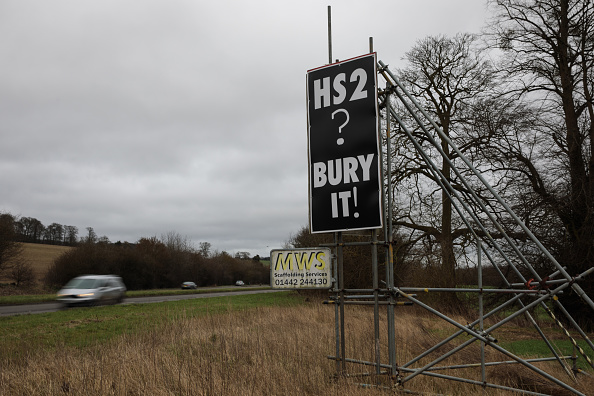HS2 told to halt ancient woodlands clearance works pending review

The government has ordered the removals of ancient woodlands near the High Speed Two (HS2) route to be halted while it waits the outcome of a review into the controversial project.
Transport secretary Grant Shapps has told HS2 Limited, the company building the high speed line, to stop its clearance works unless it can prove they are necessary to avoid major costs and schedule impacts.
Read more: Minister will make ‘go, no-go’ decision on HS2 in December
HS2, the railway that will link London to the north in stages, is currently subject to a review led by its former chairman Douglas Oakervee and scheme critic Lord Berkeley.
Its findings are due to be released later in the year.
Shapps said: “There is no sense in hiding the challenges HS2 faces, or masking the difficult decisions that need to be taken.
“So, as Douglas Oakervee’s review continues, we must take a sensible approach and recognise that some works simply cannot be undone later.
“HS2 may be a complex project overall, but I think this request is just common sense.”
An HS2 Ltd spokesperson said: “We are committed to reducing the new high speed railway’s impact on ancient woodlands, and welcome the announcement by the transport secretary today.
“As highlighted by secretary of state, we must strike a sensible balance between keeping the programme on track, and recognising that some works cannot be undone. We are working with the department for transport and our contractors to assess these areas and their impacts while the review is ongoing.”
Earlier this month a report carried out by HS2 chair Allan Cook found that is was unlikely the scheme could be delivered within its original official budget of £56bn – a price tag that has been questioned for years.
Read more: Heidi Alexander: It would add ‘insult to injury’ if HS2 skips Euston
Shapps later admitted to MPs that based on 2019 prices, the project could cost £88bn.
The first phase of HS2, which will link London to Birmingham, is also running between two and five years behind schedule, while the second phase linking Birmingham to Manchester and Leeds could be delayed by up to seven years.
Main image credit: Getty